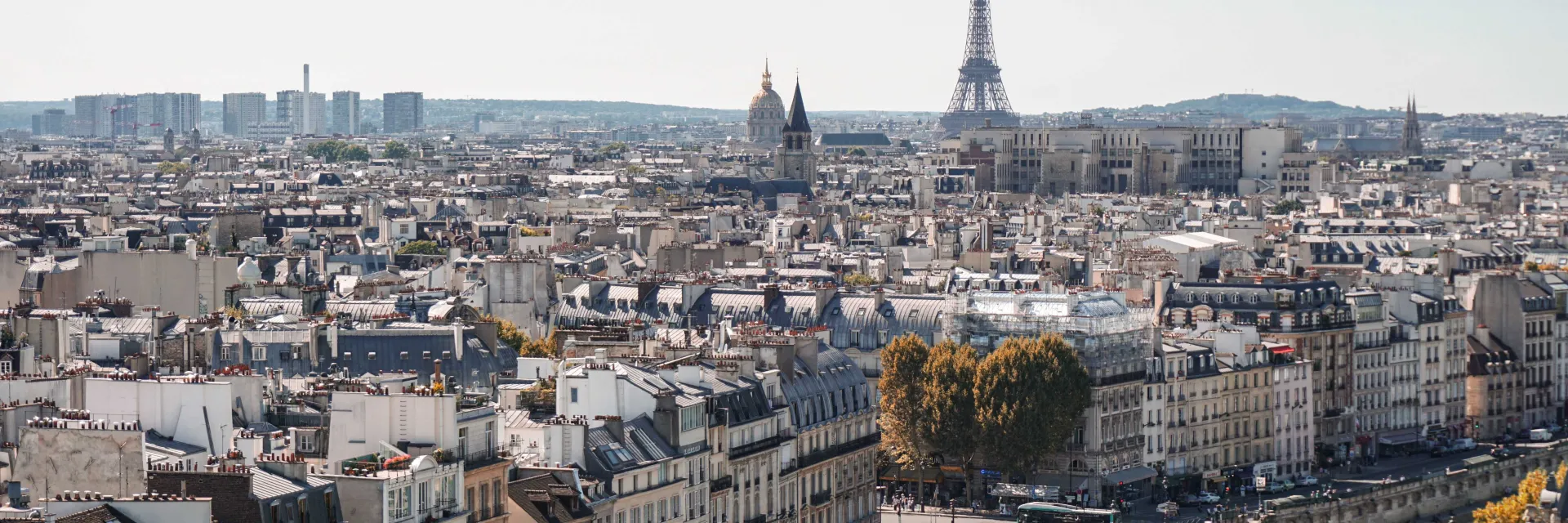
Luxury, a booming sector and job opportunities
The luxury sector: a world of its own
To succeed in the sector, young managers need to have a thorough knowledge of its codes, the different economic models, marketing techniques and strategies, but also the specific applications of international distribution of luxury products and services. They must understand that luxury is a world of permanent creativity, which they must know how to nurture while respecting tradition and learning from the latest innovations in our world.
Trends of the luxury sector: a perpetual (r)evolution
The luxury market had a spectacular year in 2022, marked by an increase in transactions in the United States, which is becoming the number one luxury customer, thus overtaking China. There are many reasons for this progression: the social opening of the luxury market, an increase in the share of UHNWIs (Ultra High Net Worth Individuals) consuming locally and, above all, an increase in generations Y and Z, which have added to and diversified the historical clienteles. According to a study by Bain & Company published in November 2022, spending by generation Z and generation Alpha will increase about three times faster than for the other generations between now and 2030, making up a third of the market.
This transformation of the customer base is accompanied by changes in purchasing behaviour, but also by expectations regarding the values displayed and promoted by luxury Maisons: excellence, emotion, experience and ethics. Excellence, the flagship value of luxury, is always linked to exceptional quality service, whether in person or online. More than ever, brands must highlight their craftsmanship and the use of high quality materials. The purchase of a luxury product must also provide emotions, which are achieved through an aesthetic adapted to the codes of the new generations. In their purchasing process, customers also want to live a unique, immersive and entertaining experience. Ethics are becoming increasingly important. Luxury brands have to show their commitment to diversity, inclusiveness and sustainability.
The characteristics of the luxury sector: values that shape the future
Luxury and sustainability
The world of luxury is increasingly adopting CSR in order to meet the demanding requirements of customers, who no longer consume only products/services but brands with which they share the same values. Social, environmental and economic concerns are therefore considered transversally in the strategy of the Maisons: sourcing (transparency on suppliers), traceability (thanks to the blockchain), manufacturing process (no more use of animal fur, carbon neutrality)...
Second-hand luxury purchases are no longer a taboo. Driven by the younger generations (54% of generation Z and 48% of millenials), this market represents a real economic boon for the luxury sector. With 33 billion euros generated in 2021, the second-hand market is growing 4 times faster than the new market! The circular economy nevertheless brings new reflections for the luxury sector. For example, how to adapt the customer experience, not cannibalise new products or even dilute the exclusivity of the brand?
Luxury and Diversity & Inclusion
The new generations are not afraid to make their voices heard for causes that are close to their hearts. This is why they expect brands and Maisons to be responsible and representative of humanity in all its diversity. And the risk can be great for Maisons that do not meet these new "requirements": bad buzz on social networks, requests for a boycott, withdrawal of collections, etc.
In a context where brand commitment is no longer an option, the leaders of the sector want to set an example and separate themselves from the image that luxury can sometimes send out: too traditional, too disconnected and not very committed. Whether through public statements (Kering's press release against racism following the death of George Floyd), donations to associations or internal initiatives to promote equality (EllesVMH), luxury is committed and proclaims it loud and clear.
Luxury and globalization
The sector was driven in 2022 by the United States (€85 billion) but also the European market (€60 billion) thanks to the recovery of tourism and a return of local customers. Although important, the Chinese market (€80 billion) has nevertheless declined by 10% after 5 years of constant growth, due to the country's anti-Covid policy. The luxury market is international, with a presence on all continents: the market is estimated at €30 billion in Japan, €40 billion in the rest of Asia and €17 billion spread over different areas such as Russia, Latin America, the Gulf States, etc.
The French art de vivre is a source of fantasies. Our many renowned Maisons, often centuries old and heirs to a specific know-how, never cease to demonstrate their ability to renew themselves while remaining faithful to this image of excellence. An image that makes people dream and is reinforced by popular culture and the media (83% of Americans believe that the Emily in Paris show is close to reality). The French group LVMH is number one among the largest companies in the sector, proof that this know-how and excellence works at a global scale.
Luxe and digital
The e-commerce market was worth 62 billion euros in 2021 and, according to McKinsey, 20% of luxury goods sales will be made online by 2025. It therefore seems more important than ever for Maisons to maximise the use of digital in their marketing strategy.
In parallel to the classic e-commerce site, the Maisons are bursting with creativity to offer online experiences in order to attract new customers (Millenials, Gen Z & Y): remote fitting programmes, ultra-personalised chat bots thanks to AI or even live shopping. The latter could even represent 20% of global e-commerce sales according to McKinsey!
Technologies are pushing back the limits of the imagination and offering new possibilities in terms of experience and consumption. Gaming, virtual reality and metaverse are new playgrounds for luxury Maisons: collaboration with video games, cryptocurrencies, NFT, blockchains... A market that could represent 10% of the luxury market in 2030 according to the Morgan Stanley bank!
Booming jobs in the luxury sector
Numerous opportunities and doors are opening up for luxury enthusiasts, thanks to this multi-billion dollar market, which should continue to grow in the years to come. Also, the trends and values shaping the sector are helping to further develop the luxury professions. Here are the main fields in which tomorrow's professionals will be able to flourish, and in which Sup de Luxe strives to train its students:
Creation
Marketing & communication
Retail & customer experience
Digital & e-commerce
Visual merchandising
Inbound channels
Personalization
Service & Support
Visual merchandising
Second hand
New markets & new customers
NFT & metaverse
CSR, sustainability & circularity
Entrepreneurship & innovation
Distribution & supply chain
CRM
Why Work in Luxury: Multiple Career Opportunities
Careers in luxury have evolved significantly due to changes in the retail landscape and the digital transformation of communication. Marketing is just one link in the broader “commerce” chain, and careers in the luxury sector are constantly evolving.
The wide range of professions within the luxury sector offers exciting opportunities for those seeking to work in a prestigious, creative environment driven by excellence. Each of these roles contributes to creating unique and memorable experiences for clients in search of elegance and refinement.
Marketing
Luxury marketing refers to all the techniques used to create, promote, and commercialize luxury products or services. While rarity, excellence, and craftsmanship define the luxury universe, it is essential to enhance its visibility and value through targeted marketing strategies. More than in any other sector, the product carries a story, conveys a strong message, and communicates symbolic and unique values to its audience.
Career opportunities
International Marketing Manager – Product Manager – Brand Manager – Head of Marketing – Trade Marketing Specialist – Marketing Research Analyst – Customer Journey Project Manager
Communication
Communication plays a key role in the luxury sector. Luxury communication professionals are responsible for managing brand image and reputation. Through its various specializations, communication involves sophisticated public relations, the organization of prestigious events, social media management, and relationships with the press, influencers, and celebrities.
Career opportunities
Influence Project Manager – PR Consultant – Events Project Manager – Communication Manager – Community Manager – Social Media Manager – Content Creator
Digital
In an era where digital plays a central role in everyday life, luxury brands have successfully adapted to offer exceptional online experiences. Digital acts as a powerful complement to luxury brand strategies, enhancing image and identity, attracting new audiences, anticipating market trends, and bringing modernity while preserving the exclusivity and authenticity that define luxury.
Career opportunities
Media Manager – Marketing Automation Specialist – Web Marketing Manager – Data Analyst – E-commerce Manager – Digital Project Manager – Traffic & Acquisition Manager
Logistics
Logistics is essential to ensuring an efficient supply chain in the luxury sector. Stock management, product delivery, warehouse operations, planning, and control of product origin and authenticity are key responsibilities—but not the only ones. Supply chain management also enables innovation in customer relations and data analysis, notably through traceability, which is essential to adapt and continue inspiring clients.
Career opportunities
Sales Manager – Supply Manager – Logistics Coordinator – Export Manager – Inventory Manager – Planning Manager – Supply Chain Project Manager
Retail
Retail has always played a central role in the luxury sector. In recent years, however, major transformations have taken place: changing consumer behaviors, digitalization of commerce, multiplication of channels and offerings, and the emergence of new practices such as short supply chains and second-hand luxury. Reinventing the customer experience in this context is essential, leading to the development of new retail strategies.
Career opportunities
Retail Design Manager – Store Manager – Sales Advisor – Sales Manager – Client Advisor – Visual Merchandising Manager – Brand Ambassador
Sustainability
Sustainability and Corporate Social Responsibility (CSR) are reshaping the luxury sector at every level. Brands are adopting responsible practices, designing eco-conscious products, and rethinking their communication strategies. Luxury Houses are integrating sustainability into strategic decision-making and investing in environmentally respectful technologies. This transformation is creating new roles across the value chain, paving the way for a more ethical and responsible luxury.
Career opportunities
CSR Manager – CSR Project Officer – Eco-design Specialist – Environmental Project Manager – Sustainable Sourcing Manager – Social & CSR Project Manager – CSR Analyst
How to prepare for a career in luxury?
Sup de Luxe, a pioneering institute in luxury business and management, has been training future leaders of the sector for over 30 years.
If you are passionate about luxury and wish to pursue a career in the field, feel free to explore our range of programmes or contact Sup de Luxe’s admissions advisors directly. They will be happy to support and guide you in shaping your academic and professional path.
